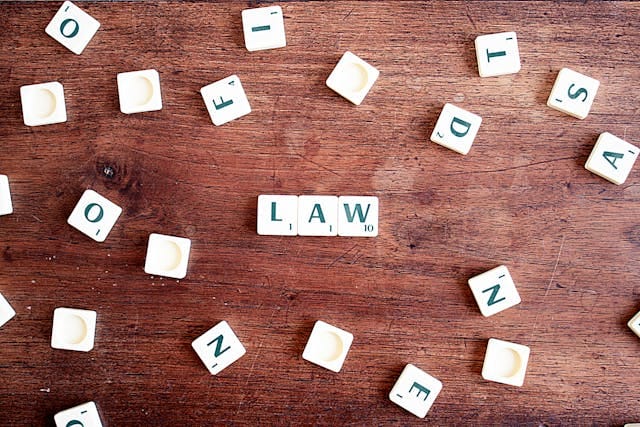Regulations on AI have become a crucial topic in today’s rapidly evolving technological landscape. As artificial intelligence (AI) continues to revolutionize industries and societies, it raises critical concerns about ethics, privacy, security, and fairness. Governments and organizations worldwide are working to create frameworks and guidelines to manage the potential risks of AI while encouraging innovation. The conversation around regulations on AI is not just about controlling AI technology, but also about ensuring that it serves humanity in a responsible, transparent, and ethical manner. This blog will explore the various aspects of regulations on AI, including their global development, impact on privacy, and the role of AI in governance and lawmaking.
With AI’s transformative capabilities, from automating industries to creating new forms of art and communication, it is essential that governments step in with regulations on AI to mitigate risks. Without proper governance, AI could potentially exacerbate issues like discrimination, job displacement, and privacy violations. Thus, understanding the scope and importance of AI regulations is paramount for businesses, governments, and citizens alike.
In this article, we will delve into the global landscape of AI regulations, the EU’s pioneering role, the intersection of AI and GDPR (General Data Protection Regulation), and the regulatory approaches taken by various nations and international organizations. Through these insights, we will aim to answer the pressing question: How should AI be regulated to ensure it benefits society without compromising individual rights?
The Growing Need for Regulations on AI
As artificial intelligence becomes more integrated into our daily lives, the need for regulations on AI has become more urgent. AI technologies are powerful tools, capable of transforming sectors such as healthcare, finance, transportation, and even entertainment. However, these advancements also come with significant challenges, including ethical dilemmas, potential bias, and privacy concerns.
One key area where regulations on AI are crucial is data privacy. With AI relying heavily on large datasets to train algorithms, ensuring that personal data is handled securely and ethically is critical. The General Data Protection Regulation (GDPR) in the EU has set the standard for data protection, and its intersection with AI regulation will shape the future of AI use globally.
The issue of accountability also arises with AI. When decisions are made by AI systems—whether in hiring, lending, or criminal justice—who is responsible if something goes wrong? AI regulations must address the need for transparency and accountability to ensure that AI systems operate in a fair, explainable, and legally compliant manner.
Global Landscape of AI Regulations
AI regulations are being developed worldwide, with each region taking a unique approach to managing the technology. The European Union (EU) has been a leader in developing comprehensive AI regulations, while other countries like the United States, China, and Japan are also making strides toward creating frameworks for AI governance.
In the EU, AI regulations are becoming a model for other countries. The EU has introduced the EU AI Regulation to ensure AI systems are developed and used in a way that respects human rights and guarantees safety and trust. The EU AI regulation aims to create a risk-based approach to regulating AI, categorizing AI systems into low-risk, high-risk, and critical-risk categories. The regulations aim to minimize risks while encouraging innovation in AI technology.
On the other hand, the United States has taken a more decentralized approach, with agencies like the Federal Trade Commission (FTC) focusing on AI regulations around consumer protection and privacy concerns. While the U.S. has not yet implemented a nationwide AI regulatory framework, there are growing calls for government regulation of AI to prevent potential harms.
EU’s Approach to Regulations on AI
The EU AI Regulation is perhaps the most comprehensive regulatory framework that has been proposed so far. This regulation aims to create a legal foundation for the safe and ethical deployment of AI systems across all member states. The EU regulation on AI takes a risk-based approach, which means that the level of regulation depends on the risk associated with the AI system.
For example, high-risk AI systems—such as those used in healthcare, law enforcement, or transportation—are subject to stricter scrutiny and regulatory requirements. These include mandatory risk assessments, transparency measures, and human oversight mechanisms. On the other hand, lower-risk AI systems, such as those used in entertainment or customer service, face lighter regulatory requirements.
The EU AI Regulation is also closely tied to the GDPR AI, as it builds on the data protection principles outlined in the GDPR. This creates a unified approach to AI governance in the EU, ensuring that AI systems do not infringe on individual privacy rights while promoting the development of trustworthy AI technologies.
AI and GDPR: A Vital Intersection
One of the most important aspects of regulations on AI is the intersection between AI and the General Data Protection Regulation (GDPR), which governs data protection and privacy in the European Union. As AI systems often rely on large datasets to make decisions and predictions, they must comply with the GDPR’s provisions on data processing, consent, and the right to be forgotten.
Under the GDPR, individuals have the right to know how their personal data is being used and the right to request its deletion. These rights extend to AI systems that process personal data, meaning AI developers and users must ensure that their systems are compliant with GDPR regulations. The GDPR and AI relationship is a key focus of artificial intelligence laws and regulations in the EU and is seen as a model for other regions to follow.
The implementation of AI regulations that align with GDPR principles also ensures that AI does not inadvertently violate privacy rights. It provides individuals with greater control over their personal information while allowing AI systems to function within legal boundaries.
The Role of Government Regulations on Artificial Intelligence
Government regulations on artificial intelligence are critical for ensuring the ethical use of AI technologies. These regulations are designed to address the societal impact of AI, from ensuring data privacy to preventing discriminatory outcomes in AI-powered decision-making.
For example, AI regulations around the world vary, with some countries focusing on privacy protection and others emphasizing fairness and transparency. Government regulation of AI also addresses the ethical concerns of AI systems, such as ensuring that they are free from biases that may lead to unfair treatment of certain groups of people.
Governments are working to create comprehensive regulatory frameworks that strike a balance between fostering innovation and protecting citizens’ rights. These frameworks aim to ensure that AI technologies are used responsibly while promoting public trust in AI systems.
AI Regulation in Different Countries and Regions
Different regions and countries have distinct approaches to regulating AI. While the EU has implemented detailed AI regulations, the U.S. has taken a more sectoral approach, with individual agencies focusing on AI’s impact in their respective areas. For instance, the CFPB Artificial Intelligence regulations focus on how AI is used in consumer financial products, ensuring that AI-powered lending decisions are fair and transparent.
In China, the government has introduced AI regulations that focus on promoting the development of AI technology while maintaining strict control over its applications. China’s approach to AI regulation emphasizes national security, with AI systems being monitored for any potential risks that could affect the country’s political and social stability.
The Future of AI Regulations
The future of regulations on AI will likely see more countries adopting comprehensive frameworks that address the ethical, legal, and societal challenges of AI technologies. As AI continues to evolve, governments will need to ensure that their regulatory frameworks are adaptable to new developments, such as advancements in AI-powered autonomous systems and emerging technologies like quantum computing.
Furthermore, international cooperation will be essential in creating global AI regulations that standardize approaches to AI governance across borders. This will help prevent regulatory fragmentation, where different regions have conflicting regulations that could hinder the global development of AI.
Conclusion: The Importance of Effective Regulations on AI
The rapid development of AI technology has raised important questions about the future of governance, privacy, and fairness. Effective regulations on AI are essential to ensuring that AI systems are developed and deployed in ways that are ethical, transparent, and beneficial to society. By creating frameworks that prioritize privacy, accountability, and fairness, governments can ensure that AI technologies enhance human life without infringing on individual rights.
As we move forward, it is crucial for global cooperation and continuous dialogue between governments, developers, and civil society to create a balanced approach to AI regulation. By striking the right balance between innovation and protection, we can unlock the full potential of AI while safeguarding humanity from its risks.






